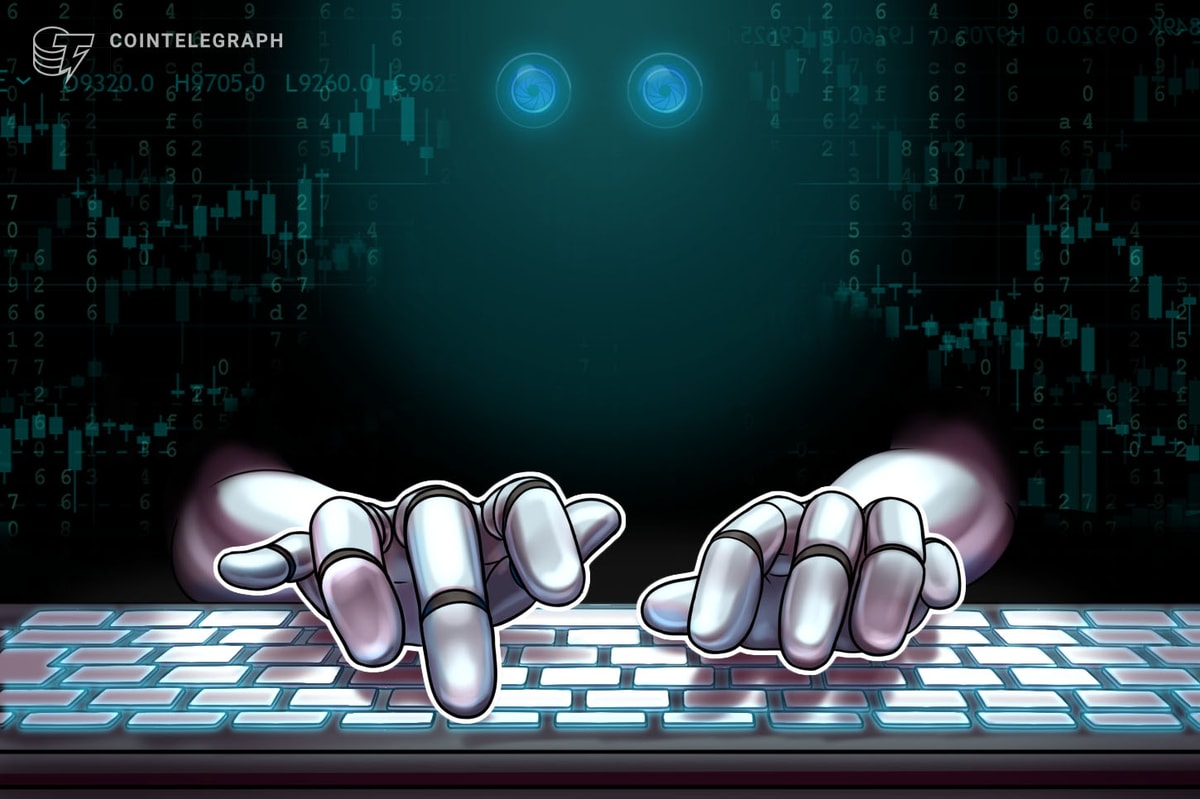The artificial intelligence (AI) market is becoming one of the fastest growing industries in the world. According to market research firm Next Move Strategy Consulting, the current value of the artificial intelligence market is close to $100 billion and is expected to grow exponentially.
Given this, it’s no surprise that chatbots that use artificial intelligence are also on the rise. Recent findings from Precedence Research indicate that the global chatbot market size will reach $840 million in 2022.
AI chatbots for Web3 developers are in the works
As opportunities around AI and chatbots flourish across industries, the Web3 sector is also starting to capitalize on the trend, with blockchain companies building AI chatbots to help developers build apps faster and more efficiently.
Aanchal Malhotra, head of RippleX Research, an organization within Ripple that focuses on the development and growth of the XRP Ledger, told Cointelegraph that RippleX is currently working on building an artificial intelligence chatbot that XRP Ledger developers can ask questions about. :
Instead of searching through all of the client’s documentation and libraries, developers can direct their questions to an AI chatbot to get instant answers. This makes life much easier for developers as it shortens the time it takes to turn ideas into applications.
Skale Labs, the team behind the Skale blockchain network, is also building a chatbot based on artificial intelligence. Jack OHolleran, co-founder and CEO of Skale Labs, told Cointelegraph that the Skale network has built-in AI and machine learning capabilities that enable developers to run pre-trained AI models in a smart contract.
Artificial intelligence-based smart contracts fire at very high volumes without human intervention. This allows developers to build quickly and efficiently, he said.
Oholleran shared that the Skales AI chatbot will soon be released to the public, stating that one of the primary uses for AI is to support engineering development.
Magazine: Rebuilding Ethereum: Blockchain Innovation or Dangerous House of Cards?
Developers are now building with unprecedented efficiency and productivity thanks to AI support. One of the key areas of support, he said, is immediate access to technical documentation and coding knowledge.
Matthew van Niekerk, CEO and co-founder of blockchain programming tool SettleMint, told Cointelegraph that AI tools are essential for developers.
Van Niekerk explained that SettleMint recently added an AI Genie engineering assistant to its platform for rapid smart contract development and quality assurance testing and debugging.
Van Niekerk explained that our AI Genie is built to help organizations develop their blockchain applications faster so they can take advantage of the $3.1 trillion opportunity enabled by blockchain.
Van Niekerk also noted that the SettleMints AI Genie is designed to support humans, not replace them. This is important to highlight, as there are concerns that AI-powered assistants may eventually replace human workers.
The tool itself is positioned as an engineering assistant, not an engineer. It’s built to abstract away the mundane processes and complexities that prevent developers and engineers from focusing on building innovative solutions that deliver a clear return on investment for their business, Van Niekerk explained.
To understand this, William Baxter, CTO and co-founder of tokenization platform Vertalo, told Cointelegraph that his company currently uses chatbots to summarize and present data to internal and external audiences. Baxter believes that assisted learning is one of the most promising general applications for chatbots:
Instead of searching for topics and checking the results or relying on an operator, a chatbot allows you to consume huge amounts of information in a nutshell. Combined with web accessibility and the use of notices that encourage the inclusion of links to primary sources, this dramatically expands the scope of online research. When learning a new programming language, blockchain, or app, feedback from a chatbot is invaluable, even if it’s not entirely correct.
Challenges may lead to delays in implementation
Although AI-enabled chatbots have the potential to help Web3 developers build better, a number of challenges may slow adoption.
For example, while OHolleran is aware that AI-based smart contracts may accelerate technical development, he noted that these programs often require the throughput to run on a chain with predictable and automated costs.
That can be problematic in a grid with high gas costs and variable costs, he said, because expected costs can vary dramatically and become randomly expensive quickly.
In order to combat this, OHolleran explained that the Skale network has on-chain fees instead of gas fees, which makes total fees lower and more predictable.
Lydia Mark, director of communications at Magma AI, a project that is creating an AI chatbot that provides users with a virtual Web 3 technology learning assistant, told Cointelegraph that moral bias can also be a problem for AI chatbots. Artificial is problematic.
He said it would be very easy for AI systems like Magma to inherit biases introduced during data training, which in turn could negatively impact the entire ecosystem. To combat this, Mark shared that Magma AI uses bias detection and mitigation techniques.
However, one of the biggest challenges associated with AI chatbots is privacy and data security. Van Niekerk explained that companies building or using AI assistants must consider internal business policies and government privacy regulations.
Recently: Blockchain Improves Charity Transparency But Is It Right For Everyone?
Large companies may have restrictions on the use of productive AI technologies due to the risks of data privacy violations. He said SettleMints AI Genie was purposely built as an optional tool on the platform so that companies only participate when and if needed.
Challenges aside, Van Niekerk stated that overall, AI chatbots help ensure that Web 3 is more inclusive and accessible to a wider range of developers.
The knowledge and expertise now exists to immediately support new developers entering the space. He noted that Web2 developers can increase their Web3 skill and learning curve by an order of magnitude thanks to AI developer support technology.
#Blockchain #companies #creating #chatbots #developers
Image Source : cointelegraph.com

